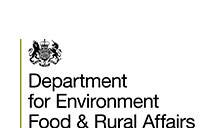Overview of the US Role in Global Climate Diplomacy
The United States plays a crucial role in global climate diplomacy, actively participating in international negotiations and initiatives aimed at addressing climate change. As one of the largest emitters of greenhouse gases, the US holds significant responsibility in the global efforts to mitigate the impacts of climate change.
The historical significance of the US in climate negotiations cannot be understated. Over the years, the country has been involved in major international agreements such as the Paris Agreement, which aims to limit global warming to well below 2 degrees Celsius. The US has also been instrumental in driving global climate action by setting emission reduction targets and supporting clean energy transitions worldwide.
However, it is crucial to acknowledge that the US has also faced criticism for its past actions and policies that have contributed to environmental degradation. Nonetheless, the country has demonstrated its commitment to addressing climate change through its participation in various international climate conferences and its efforts to shape global climate policies.
The US’s policies have a significant impact on global climate action. For instance, changes in US energy policies, investments, and regulations can influence renewable energy markets and technological advancements. The country’s support for clean energy industries, such as renewable energy and green technology, opens up economic opportunities and paves the way for a sustainable future.
Furthermore, the US has the potential to strengthen its diplomatic partnerships by actively engaging with other countries. Collaboration, knowledge sharing, and resource exchange are vital in addressing climate change on a global scale. By fostering such partnerships, the US can play a leading role in shaping international climate policies and strategies.
Opportunities for the US in Global Climate Diplomacy
Economic Opportunities in Clean Energy Industries
One significant opportunity for the United States in global climate diplomacy lies in the economic potential associated with clean energy industries. The transition towards renewable energy and green technology presents a chance for the US to capitalize on innovation and investment.
The US has a strong foundation in research and development and possesses the capability to lead in the development of clean energy technologies. By promoting innovation and advancing research in renewable energy sources, such as solar and wind power, the US can create new industries and job opportunities.
The growth of these clean energy industries not only ensures a sustainable and secure energy future but also attracts substantial investment. As countries worldwide strive to reduce their carbon footprints, there is a growing global market for clean energy technologies, along with the potential for significant export opportunities for the US.
By seizing these economic opportunities, the US can not only strengthen its own economy but also position itself as a global leader in clean energy innovation and technology, fostering further collaboration and partnerships in global climate action.
Diplomatic Partnerships and Collaboration
In addition to economic opportunities, the US can also enhance its role in global climate diplomacy by strengthening its diplomatic partnerships and actively engaging with other countries.
By collaborating with other nations, the US can foster knowledge-sharing and resource exchange in addressing climate change. Through joint initiatives, information sharing, and capacity building, countries can work together to develop effective strategies to mitigate and adapt to the impacts of climate change.
Engaging in climate diplomacy can also help build trust and cooperation among nations. By actively participating in international climate negotiations and displaying a commitment to addressing climate change, the US can restore its global reputation as a leader in climate action.
Furthermore, diplomatic partnerships can provide opportunities for collective action on key climate issues and enable the US to exercise its influence in shaping global climate policies. By aligning with other countries and utilizing existing international platforms, the US can amplify its impact and create a unified front to tackle the complex challenges posed by climate change.
Overall, by strategically capitalizing on economic opportunities in clean energy industries and actively engaging in diplomatic partnerships and collaborations, the US can enhance its role in global climate diplomacy and contribute significantly to efforts in combating climate change.
Challenges Faced by the US in Global Climate Diplomacy
Domestic Political Factors
- The political divide on climate change within the US poses a significant challenge to the country’s pursuit of a prominent role in global climate diplomacy.
- There are differing opinions and priorities among political parties and within different regions of the country, which can hinder the development and implementation of effective climate policies.
- Public opinion on climate change also influences the policymaking process. It is important to address public skepticism and misinformation through targeted education and communication campaigns to build consensus and support for climate action.
Influence of Economic Sectors
- Certain economic sectors, such as fossil fuel industries, may have conflicting interests and significant influence over climate policies.
- These sectors often resist efforts to transition to cleaner energy sources and may lobby against policies that could negatively impact their profitability.
- It is essential to carefully navigate these conflicts of interest and ensure that climate policies are designed to accommodate a just and sustainable transition for workers and communities affected by the shift to a low-carbon economy.
International Challenges
- The US’s commitment to climate action has been questioned by other countries, particularly due to its withdrawal from the Paris Agreement under the previous administration. Rebuilding trust and credibility is crucial for the US to effectively engage in global climate diplomacy.
- Skepticism or resistance from certain countries may limit the US’s ability to collaborate and drive collective efforts to address climate change. Engaging in open dialogue, showcasing climate leadership, and supporting initiatives in vulnerable regions can help overcome these challenges.
To learn more about the challenges and obstacles faced by the US in global climate diplomacy, you can refer to reliable sources such as the United Nations Framework Convention on Climate Change (UNFCCC) and the Pew Research Center’s reports on public opinion and climate change.
Policy Initiatives and Actions Taken by the US in Climate Diplomacy
The United States has taken significant policy initiatives and actions to address climate change and actively participate in global climate diplomacy. Under the current administration, there has been a renewed commitment to prioritizing climate action and reinvigorating the US role in international cooperation.
Rejoining the Paris Agreement
One of the key policy initiatives taken by the US was rejoining the Paris Agreement, signaling its commitment to global climate action. The decision to rejoin the agreement, after withdrawing under the previous administration, has solidified the US’s intent to address climate change collectively with other nations.
Commitments to Reduce Greenhouse Gas Emissions
The United States has made substantial commitments to reduce greenhouse gas emissions, setting ambitious emission reduction targets. These targets include a goal to achieve a 50-52% reduction in emissions by 2030 compared to 2005 levels. These commitments are crucial in demonstrating the US’s commitment to combatting climate change on a global scale.
Promotion of Clean Energy and Energy Efficiency
The US government has implemented executive orders and legislation aimed at promoting clean energy and enhancing energy efficiency. These policy initiatives have included incentives for renewable energy development, support for electric vehicle adoption, and measures to improve energy efficiency in buildings and infrastructure. By prioritizing clean energy, the US aims to reduce reliance on fossil fuels and foster a transition to sustainable and low-carbon alternatives.
Support for Climate Mitigation and Adaptation Efforts
The US has also demonstrated its commitment to supporting climate mitigation and adaptation efforts, both domestically and internationally. Through executive orders and funding allocation, the government has invested in projects and initiatives focused on enhancing climate resilience, promoting natural climate solutions, and supporting climate-related research and development. These actions aim to help mitigate the impacts of climate change and build resilience to its effects.
Overall, the US policy initiatives and actions in climate diplomacy reflect a renewed commitment to addressing climate change and fostering international cooperation. By rejoining the Paris Agreement, setting ambitious emission reduction targets, promoting clean energy and energy efficiency, and supporting climate mitigation and adaptation efforts, the US aims to play an active role in global climate action and drive positive change towards a sustainable future.
Evaluation of the Impact of US Climate Diplomacy Efforts
Influence of US Leadership
- The United States has played a significant role in galvanizing international efforts to combat climate change and strengthen global climate action.
- Under previous administrations, the US demonstrated leadership by participating in major international agreements such as the Paris Agreement, which aimed to limit global warming to well below 2 degrees Celsius.
- The US’s influence in climate diplomacy has been evident through its engagement with other countries, encouraging them to set ambitious emissions reduction targets and supporting them in their climate mitigation and adaptation efforts.
Tangible Outcomes from Diplomatic Engagements
- The US’s diplomatic engagements have resulted in tangible outcomes that contribute to global climate action.
- Collaborations with other countries have led to joint initiatives aimed at reducing greenhouse gas emissions, such as sharing best practices and technologies for clean energy deployment.
- The US has made financial investments towards climate solutions, supporting projects in developing countries to help them transition to low-carbon economies and build resilience against climate change impacts.
Evaluating Effectiveness of Climate Diplomacy
- Assessing the effectiveness of US climate diplomacy efforts requires evaluating the progress made towards achieving global climate goals.
- By rejoining the Paris Agreement under the current administration, the US has demonstrated a renewed commitment to addressing climate change and working collaboratively with other nations.
- However, it is important to note that the impact of US climate diplomacy efforts can be influenced by various factors, including domestic policies and international cooperation.
Importance of Multilateral Approaches
- The United States recognizes the importance of multilateral approaches in addressing climate change and understands that no single country can tackle this global challenge alone.
- By actively engaging with other countries, the US can leverage existing international platforms to promote climate partnerships, knowledge sharing, and capacity building.
- These collaborative efforts are crucial in enhancing global climate action and ensuring the effective implementation of climate policies and targets.
Advancing Climate Justice and Equity
- The US has the opportunity to further advance climate justice and equity in global climate diplomacy.
- By supporting vulnerable countries in adapting to climate change impacts, the US can contribute to a more equitable distribution of resources and support those most affected by climate change.
- Additionally, promoting sustainable development globally can help address inequalities and create a more inclusive and resilient future.
Driving Technological Innovation
- As a global leader in technology and innovation, the US has the potential to drive technological advancements to address climate challenges.
- By investing in research and development, the US can contribute to the development of clean technologies and solutions that can be adopted globally.
- Advancing technological innovation will not only support domestic efforts to reduce greenhouse gas emissions but also strengthen global efforts towards a sustainable future.
Overall, the US’s climate diplomacy efforts have had a significant impact on the global stage. Through leadership, collaborations, and financial investments, the US has contributed to global climate action and made progress towards achieving international climate goals. Going forward, it is crucial for the US to continue playing an active role, focusing on building stronger partnerships, advancing climate justice, and driving technological innovation to shape the future of global climate diplomacy.
The Role of the US in Shaping the Future of Global Climate Diplomacy
Promoting Sustainable Development Globally
One key area where the US can enhance its leadership and influence in global climate diplomacy is by promoting sustainable development on a global scale. By advocating for sustainable practices and policies, the US can encourage countries to adopt environmentally friendly approaches that mitigate climate change. This can involve supporting initiatives that prioritize renewable energy, sustainable agriculture, and efficient resource management. Such efforts can help in reducing greenhouse gas emissions and fostering sustainable economic growth.
Supporting Vulnerable Countries in Climate Change Adaptation
Another important role for the US in global climate diplomacy is to support vulnerable countries in adapting to the impacts of climate change. This can be achieved through increased financial assistance and technical support to developing nations. By helping these countries build resilience against climate-related challenges, the US can demonstrate its commitment to climate justice and equity. Furthermore, supporting vulnerable countries in their adaptation efforts can also contribute to global stability and security.
Advancing Climate Justice and Equity
The US has an opportunity to champion climate justice and equity by ensuring that the burden of climate change is distributed fairly and that the voices of marginalized communities are heard.
This can involve prioritizing the needs and concerns of frontline communities, indigenous peoples, and other vulnerable populations in climate policymaking and decision-making processes.
Additionally, the US can work towards creating mechanisms for financial and technological assistance to assist developing countries in their climate action efforts, thereby addressing historical inequalities.
Driving Technological Innovation, Research, and Development
Technological innovation plays a crucial role in addressing climate challenges, and the US can drive this innovation by investing in research and development. By promoting clean energy technologies, sustainable transportation solutions, and climate-smart infrastructure, the US can lead the way in developing and implementing advanced solutions for mitigating and adapting to climate change. This can foster global collaboration and knowledge sharing, leading to accelerated progress in addressing the climate crisis.
It is worth noting that the US government’s official websites, such as the U.S. Department of State and the White House, provide valuable information on the country’s efforts and commitments in global climate diplomacy. Additionally, reports and publications from well-established organizations like the United Nations Framework Convention on Climate Change (UNFCCC) and the Intergovernmental Panel on Climate Change (IPCC) can offer authoritative insights on the subject.
Through its leadership and influence, the US can shape the future of global climate diplomacy by promoting sustainable development, supporting vulnerable countries, advancing climate justice and equity, and driving technological innovation. By actively engaging with other nations, the US has the potential to foster international cooperation, strengthen global climate action, and create a more sustainable and resilient future for all.
Recommendations for the US in Global Climate Diplomacy
As the United States aims to maximize its impact and effectively navigate the challenges in global climate diplomacy, several key recommendations can be made to ensure its leadership and influence in addressing climate change:
Build Domestic Consensus and Bipartisan Support
One crucial recommendation for the US is to prioritize building domestic consensus and bipartisan support for climate action. This will ensure policy continuity and long-term commitment to addressing climate change regardless of political shifts. By engaging with stakeholders across the political spectrum and emphasizing the economic and social benefits of climate action, the US can overcome divisions and establish a united front in tackling the climate crisis.
Strengthen Collaboration with Other Countries
To enhance its global climate diplomacy efforts, the US should prioritize stronger collaboration with other countries. This can be achieved through actively participating in international platforms such as the United Nations Framework Convention on Climate Change (UNFCCC) and promoting climate partnerships, knowledge sharing, and capacity building. By collaborating with other nations, the US can leverage collective expertise and resources to accelerate global climate action.
Integrate Climate Considerations into Foreign Policy
Integrating climate considerations into foreign policy is another important recommendation for the US. By mainstreaming climate change across diplomatic engagements, the US can effectively address climate-related issues at an international level. This can include advocating for climate action within multilateral forums, prioritizing climate diplomacy in bilateral engagements, and aligning foreign assistance and trade policies with climate goals.
Elevate Climate Justice and Equity
To shape the future of global climate diplomacy, the US can play a pivotal role in advancing climate justice and equity. This involves supporting vulnerable countries in adapting to climate change impacts, providing financial and technical assistance for climate resilience, and ensuring that climate solutions prioritize the needs of marginalized communities. By advocating for equitable climate action, the US can build trust and foster global cooperation in addressing the climate crisis.
Drive Technological Innovation and Research
The US has a unique opportunity to drive technological innovation and research to address climate challenges. By investing in clean energy research and development, the US can develop and deploy breakthrough technologies that contribute to global emissions reductions. Additionally, fostering public-private partnerships and incentivizing private sector investment in clean energy can accelerate the transition to a sustainable and low-carbon economy.
In conclusion, by implementing these recommendations, the US can maximize its impact and navigate the challenges in global climate diplomacy. Building domestic consensus, strengthening international collaboration, integrating climate considerations into foreign policy, promoting climate justice and equity, and driving technological innovation will help the US lead the way in tackling the urgent global issue of climate change.
Category: Nature and Environment







Leave a Reply